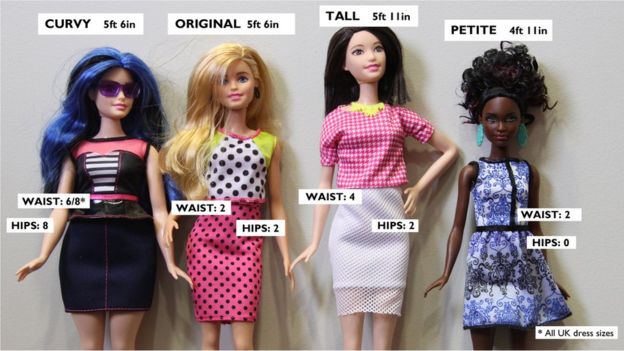Tznius. How I hate the term, and what it has come to mean.
I'm a prude. I favor my maternal Zeidy, a European gentleman for whom my Babi considerately cut back on her salty speech. I do raise an intolerant eyebrow or two when faced with excess skin or uncouth tongues—but I still cringe at the term "tznius."
Vanessa Friedman, a fashion reporter, wrote "Don't Ban Photos of Skinny Models." She does concur that standard advertisements feature women of only one body type, which is not good if people accept that as the norm. However:
It’s not just because, as Mr. Khan or any other parent well knows, banning something simply makes it much more intriguing. . .
It’s also because to judge a body healthy or unhealthy is still to judge it. . .
Just because a judgment is supposedly coming from a good place does not obviate the fact that it's a personal judgment, handed down from afar by a third party, bringing another set of prejudices and preconceptions to bear. The message in this case is that women, and young people, are not able to make such distinctions on their own. Yet that power — the ability of each individual to decide on her body for herself — is one we should be cultivating, not relinquishing.
We are surrounded by a lot of information and a lot of messages. I would rather be the one making the choice of deciding what is right or wrong for me than having strangers claim to know my triggers.
Eating disorders have been around for centuries, in times when plump women were considered attractive. I grew up fanatically playing Barbies, but it never occurred to me that her plastic body was something to aspire to. She was stuck in heels all the time, for goodness sake.
If I have a brain, it can be assumed that I can figure some things out without being "protected."
To ban an ad depicting a specific body type is to demonize that type, labeling it publicly as bad. It also suggests that it is even possible to look at a woman, or a photo of a woman, and know whether she is healthy or unhealthy. That’s a misguided idea, as Claire Mysko, chief executive of the National Eating Disorders Association, acknowledges: One individual can have a seemingly normal body mass index and still have a tortured relationship with food and her physical self; another can look almost bony, and be fine. You can’t tell from the outside.
Body types, metabolisms, and lifestyles differ as much as personalities. My niece is skinny, and eats bountifully. Others may think she doesn't.
So with tznius. "What is tznius" are arbitrary parameters that are based on personal opinions that are usually biased. It encourages judging, and officially, again, people, Jews ain't supposed to judge, for that's the Eibishter's job. His alone.
“The solution to body-shaming isn’t to limit the number and kinds of bodies we are exposed to,’’ said Peggy Drexler, assistant professor of psychology at Cornell University, and the author of “Our Fathers, Ourselves: Daughters, Fathers and the Changing American Family.” “The more sorts of bodies young women see — fat, thin, short, tall — the better they understand that bodies come in all shapes and sizes, and that theirs fits in somewhere.”
Barbie came out with dolls of various body types, and the line, I believe, is doing well. There isn't only curvy—there's also tall and petite, along with the original. We come in so many types of packaging.

What is or isn't tznius isn't up to me, or you, or her, and I hope not him. But we can agree on what it means to be nice. I think we can.
No comments:
Post a Comment